Related Research Articles
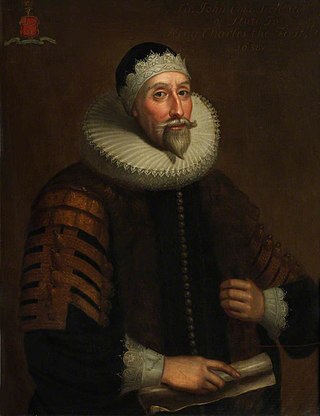
Sir John Coke was an English civil servant and naval administrator, described by one commentator as "the Samuel Pepys of his day". He was MP for various constituencies in the House of Commons between 1621 and 1629, and served as Secretary of State under Charles I, playing a key part in government during the eleven years of Personal Rule from 1629 to 1640.
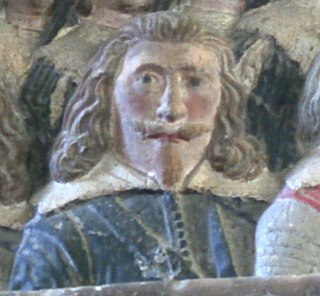
William Strode was an English politician who sat in the House of Commons variously between 1624 and 1645. He was one of the Five Members whose impeachment and attempted unconstitutional arrest by King Charles I in the House of Commons in 1642 sparked the Civil War, during which he fought on the Parliamentarian side.
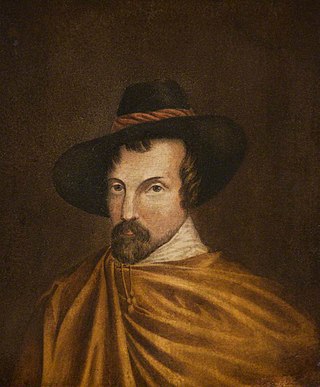
Sir William Brereton, 1st Baronet, 13 September 1604 – 7 April 1661, was an English religious Independent, author, and landowner from Cheshire. He was Member of Parliament for Cheshire at various times between 1628 and 1653, and during the First English Civil War, commander of Parliamentarian forces in the North Midlands.
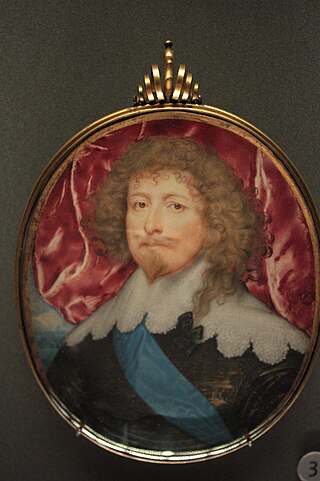
Edward Sackville, 4th Earl of Dorset KG was an English courtier, soldier and politician. He sat in the House of Commons from 1621 to 1622 and became Earl of Dorset in 1624. He fought a duel in his early life, and was later involved in colonisation in North America. He supported the Royalist cause in the English Civil War.

Sir Edward Harley was an English politician from Herefordshire. A devout Puritan who fought for Parliament in the First English Civil War, Harley belonged to the moderate Presbyterian faction, which opposed the involvement of the New Model Army in the peace negotiations that followed victory in 1646. Elected MP for Herefordshire in 1646, he was one of the Eleven Members forced into temporary exile by the army in 1647.
Sir Henry Vaughan the elder was a Welsh politician who sat in the House of Commons variously between 1621 and 1644. He was a Royalist leader during the English Civil War.
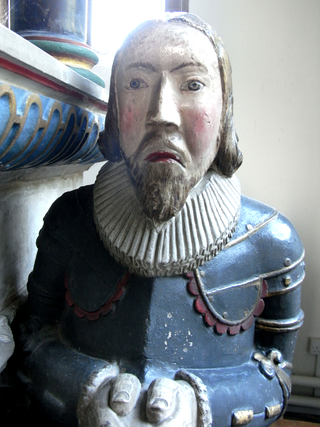
Sir Francis Popham (1573–1644) of Wellington, Somerset, was an English soldier and landowner who was elected a Member of Parliament nine times, namely for Somerset (1597), Wiltshire (1604), Marlborough (1614), Great Bedwin (1621), Chippenham 1624, 1625, 1626, 1628–29), and for Minehead (1640–1644).
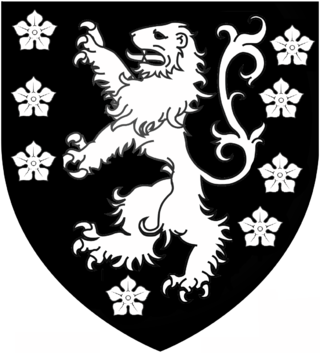
Sir Gervase Clifton, 1st Baronet, K.B. was an English politician who sat in the House of Commons at various times between 1614 and 1666. He supported the Royalist cause in the English Civil War. He was educated at St John's College, Cambridge.
Sir John Wray, 2nd Baronet was an English politician who sat in the House of Commons at various times between 1614 and 1648. He supported the Parliamentary cause in the English Civil War.
Edward Kyrton, or Edward Kirton (1585–1654), was an English politician who sat in the House of Commons variously between 1624 and 1645. He supported the Royalist side in the English Civil War.

William Mallory of Studley Royal, Yorkshire was an English politician who sat in the House of Commons variously between 1614 and 1642. He supported the Royalist side in the English Civil War. His father, John Mallory, was also an MP of Ripon.
Charles Berkeley, 2nd Viscount Fitzhardinge was an English politician who sat in the House of Commons at various times between 1621 and 1668. He supported the Royalist cause in the English Civil War. He succeeded by special remainder to the peerage of his son who predeceased him.

William Ogle, 1st Viscount Ogle was an English soldier from Northumberland who settled in Hampshire and was Member of Parliament for Winchester from 1640 to 1643. He served in a number of wars and was Royalist governor of Winchester from 1643 to 1645.
Sir Edward Rodney was an English politician who sat in the House of Commons at various times between 1621 and 1642.
Fitzwilliam Coningsby was an English politician who sat in the House of Commons in 1621 and in 1640. He supported the Royalist cause in the English Civil War.
Richard Jones was a Welsh politician who sat in the House of Commons between 1628 and 1640. He supported the Royalist cause in the English Civil War.
Sir William Uvedale was an English politician who sat in the House of Commons at various times between 1614 and 1645. He supported the Royalist cause in the Civil War.
Sir Richard Lloyd was an English politician who sat in the House of Commons at various times between 1628 and 1676. He fought for the Royalist army in the English Civil War.
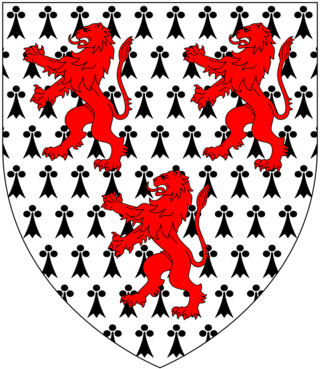
Sir George Chudleigh, 1st Baronet, of Ashton, Devon, was an English landowner and politician, who sat in the House of Commons at various times between 1601 and 1625. He had close family connections to a group of Devon Presbyterians, including Sir William Strode.
Sir Richard Spencer was an English nobleman, gentleman, knight, and politician who sat in the House of Commons from 1621 to 1629 and in 1661. He supported the Royalist cause in the English Civil War.
References
- 1 2 3 4 5 "PRICE, CHARLES (Died 1646), of Pilleth, Radnorshire, soldier and politician". Dictionary of Welsh Biography . National Library of Wales.
- 1 2 Willis, Browne (1750). Notitia Parliamentaria, Part II: A Series or Lists of the Representatives in the several Parliaments held from the Reformation 1541, to the Restoration 1660 ... London. pp. 229-239.